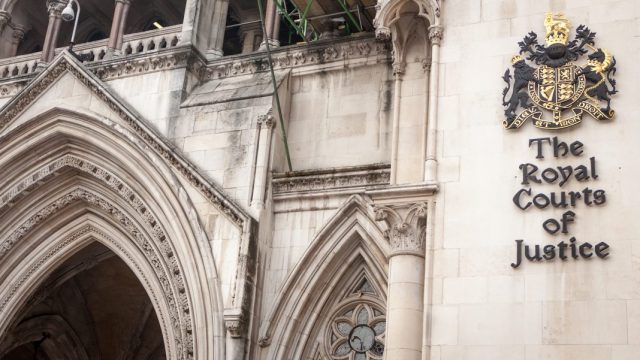Six individuals have been arrested for selling schemes that purported to allow taxpayers to avoid the 2019 Loan Charge, according to reports in the Financial Times.
The 2019 Loan Charge seeks to levy tax and National Insurance on the loan balances that result from using certain Disguised Remuneration schemes. These schemes sought to funnel income payments via offshore trusts and ultimately remunerate scheme-users via loans that were highly unlikely to be repaid.
Such schemes gained media attention in the early 2010’s after high-profile users such as comedian Jimmy Carr and football club Rangers FC were revealed to have been using them.
Although Rangers FC were taken to the Supreme Court, rather than using the existing law to crack down on such schemes, a new tax, the Loan Charge, was announced at the 2016 Budget, which applies tax and National Insurance to the inevitable loan balances that result from using the schemes.
Critics have lambasted the Loan Charge for effectively applying a new tax to historic transactions, giving the tax a quasi-retrospective scope that is criticised for undermining taxpayer certainty.
Additional criticism has been directed at the way the tax can apply to up to 20 years’ avoided tax but is charged in one tax year, which has led to life-changing tax bills in many cases, in part due to a greater exposure to higher-rate tax than would otherwise have occurred.
This means that many freelancers who have been working under a specific total tax over the past 20 years have to fork over a lump sum that can be devastating to their current financial circumstances. This would be easier if a payment plan could be agreed in order to repay the loan but as of yet one has not been decided.
The Loan Charge and its catastrophic effects led to the rise of a market for new schemes that specifically attempted to allow targets of the Loan Charge to circumvent the new rules. HM Revenue and Customs have issued four online “spotlights” so far warning taxpayers that such schemes are illegal and do not achieve the promised effect of enabling taxpayers facing bills under the new Loan Charge to neatly side-step their liabilities.
HMRC said it had arrested two individuals on May 10 on suspicion of promoting a scheme “designed to get around the loan charge, allowing individuals to evade paying taxes”.
In a separate criminal investigation, four more people were arrested on May 14 on suspicion of “using fraudulent methods to circumvent the loan charge and the taxes due” and are “suspected of enabling others to do the same.”
All six have been released pending investigation. They were all 45 years of age or older, and one was in his seventies.
HM Revenue and Customs highlighted one example of a scheme that allowed affected individuals to enter into a bet with the trust that they owed money to. The terms of the bet meant that the taxpayers were almost certain to win, using the proceeds to pay off any money owed to the trust, and thus eliminating any liability to tax under the Loan Charge. The tax authority has said such schemes do not work, and constitute illegal tax evasion – a criminal offence.
“We strongly encourage people not to use loan-busting schemes and methods,” an HMRC spokesman said. “They clearly don’t work and people run the risk of losing more money and being involved in fraud. As we always say — if it looks too good to be true, then it undoubtedly is.”
HMRC arrested a 54-year-old man from Guildford, a 58-year-old man from Stevenage, a 50-year-old man from Stratford-upon-Avon, a 78-year-old man from south London, a 45-year-old woman from Tonbridge and a 50-year-old man from Sevenoaks.
They also seized personal records from business and residential properties in London, Guildford, Stevenage, Stratford-upon-Avon, Sevenoaks and Tonbridge.
According to the tax man, all six arrests are part of a “series” of interventions it is making to charge fraud offences relating to disguised remuneration, suggesting that more arrests may still be forthcoming.
All of the arrested individuals have since been released, but HMRC declined to give further details, on the basis that its investigations are “ongoing.”
Financial Secretary to the Treasury, Melvyn Stride MP, will likely be relieved by the developments. He has consistently countered criticism that HMRC have favoured going after Disguised Remuneration (DR) scheme users instead of the promoters of the schemes with disingenuous references to arrests made in pursuance of other matters. Although the recent arrests have not targeted DR scheme promoters specifically, they do at least show that the Revenue is targeting people looking to make a profit out of the Loan Charge furore, and not just the users of DR schemes exclusively.
Phil Nicholson
21st May 2019.









